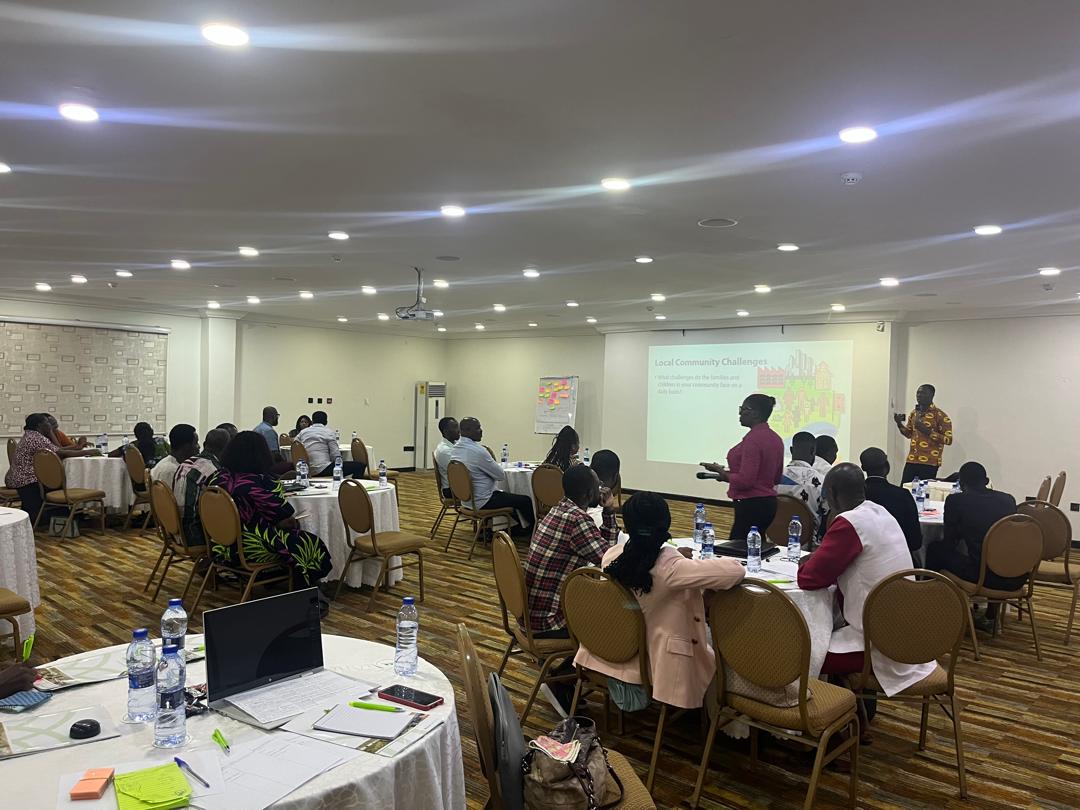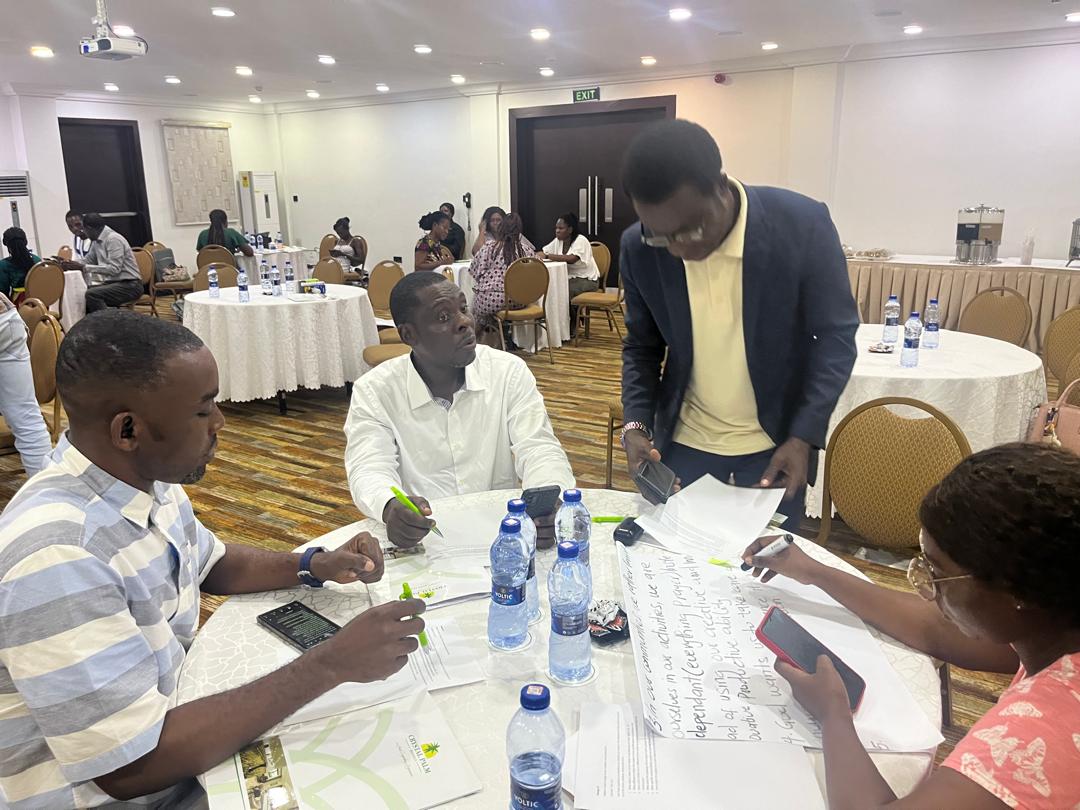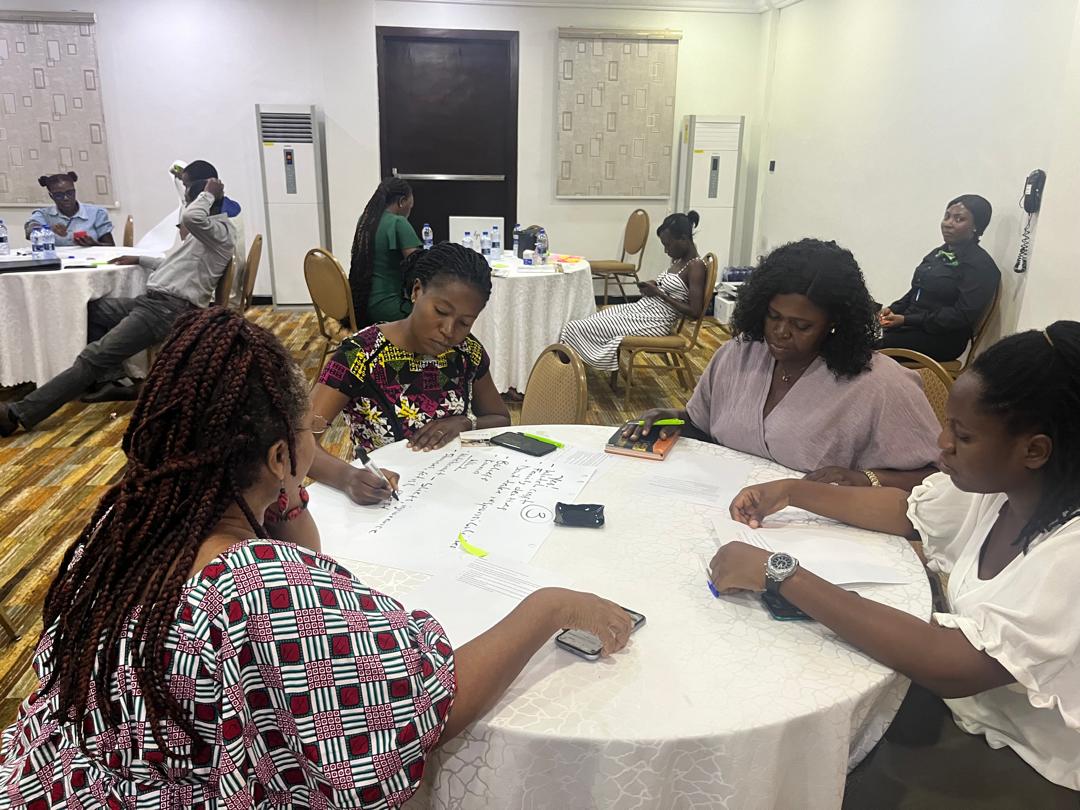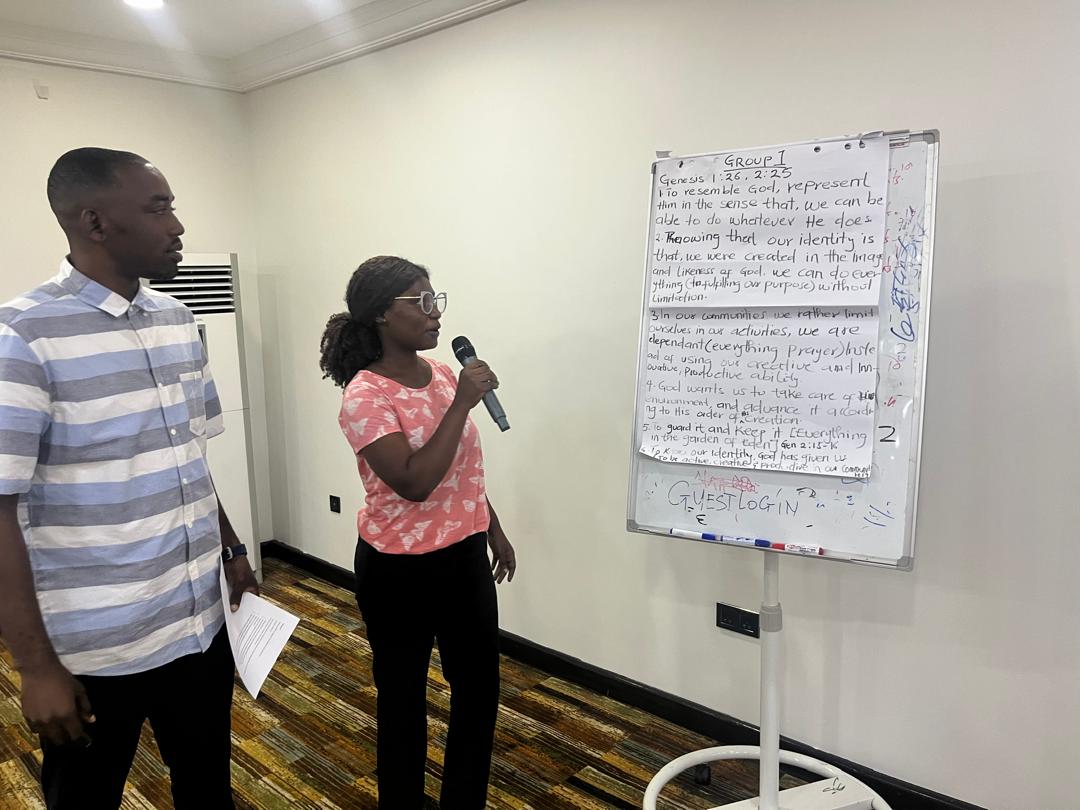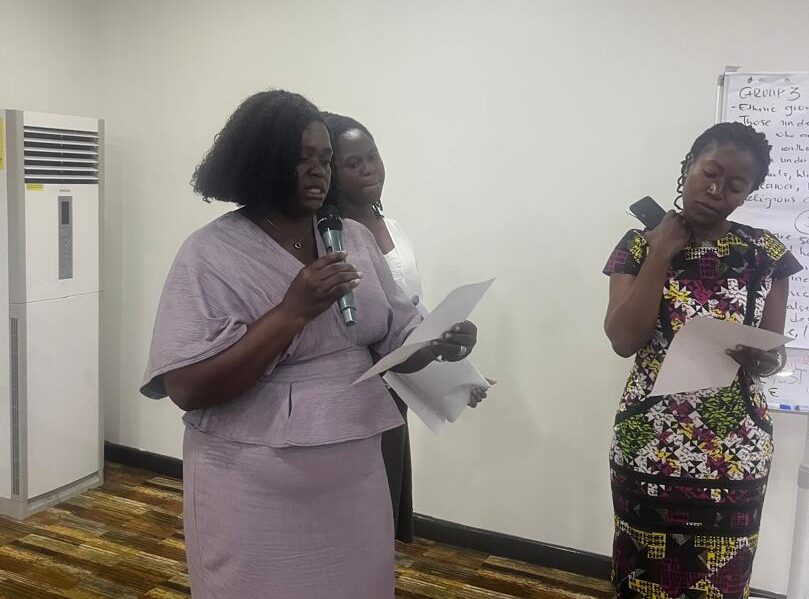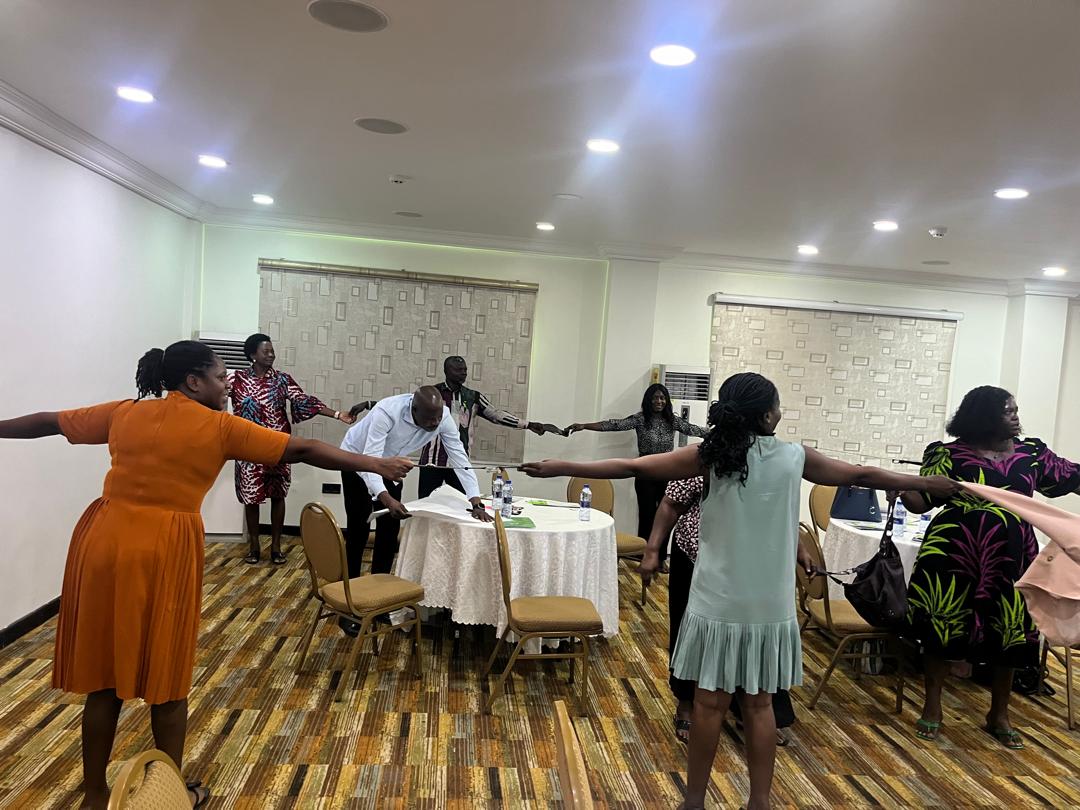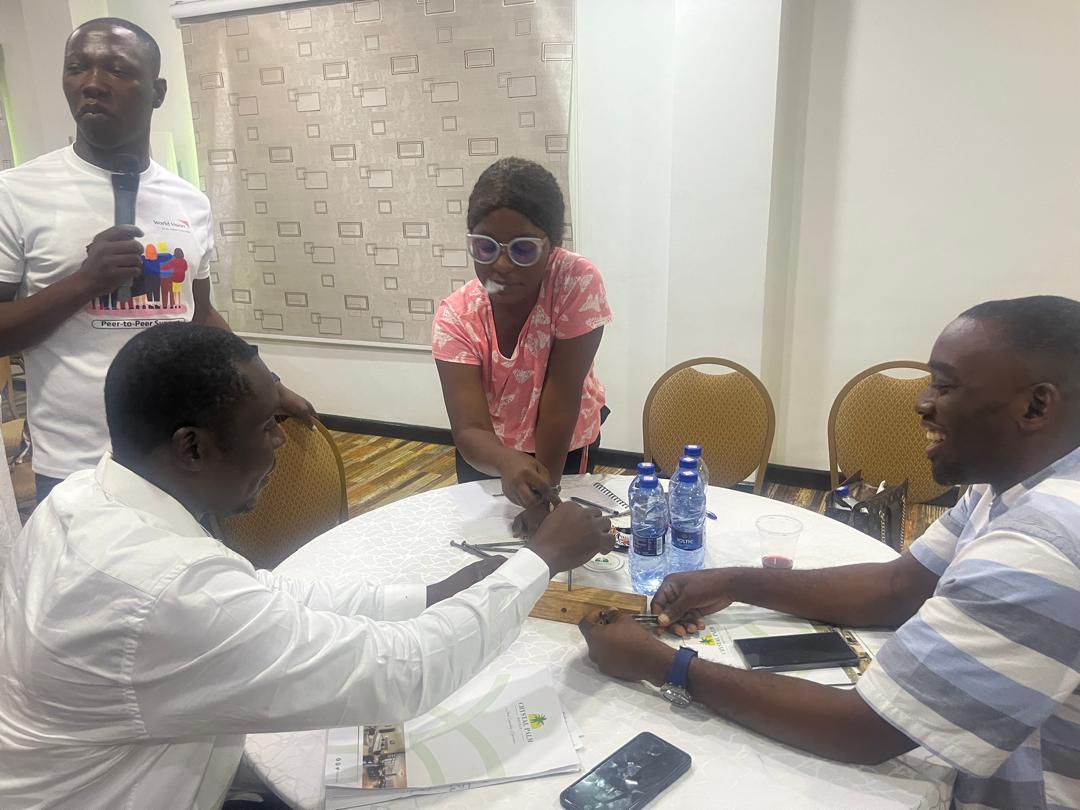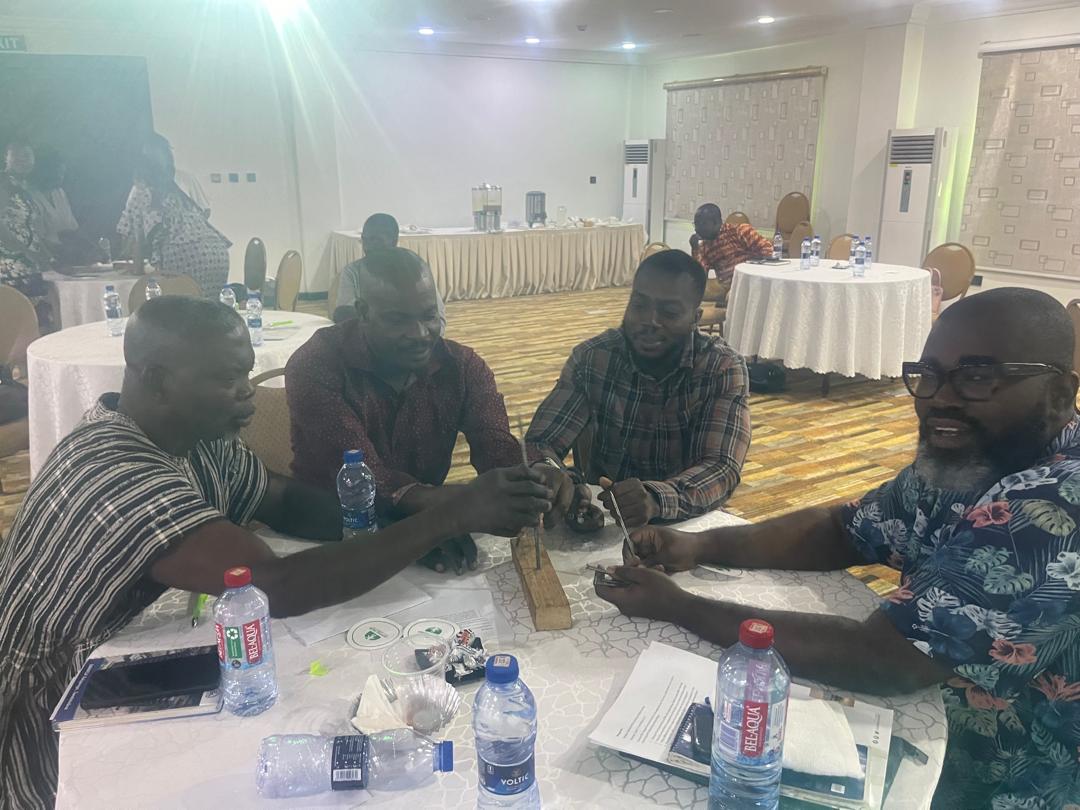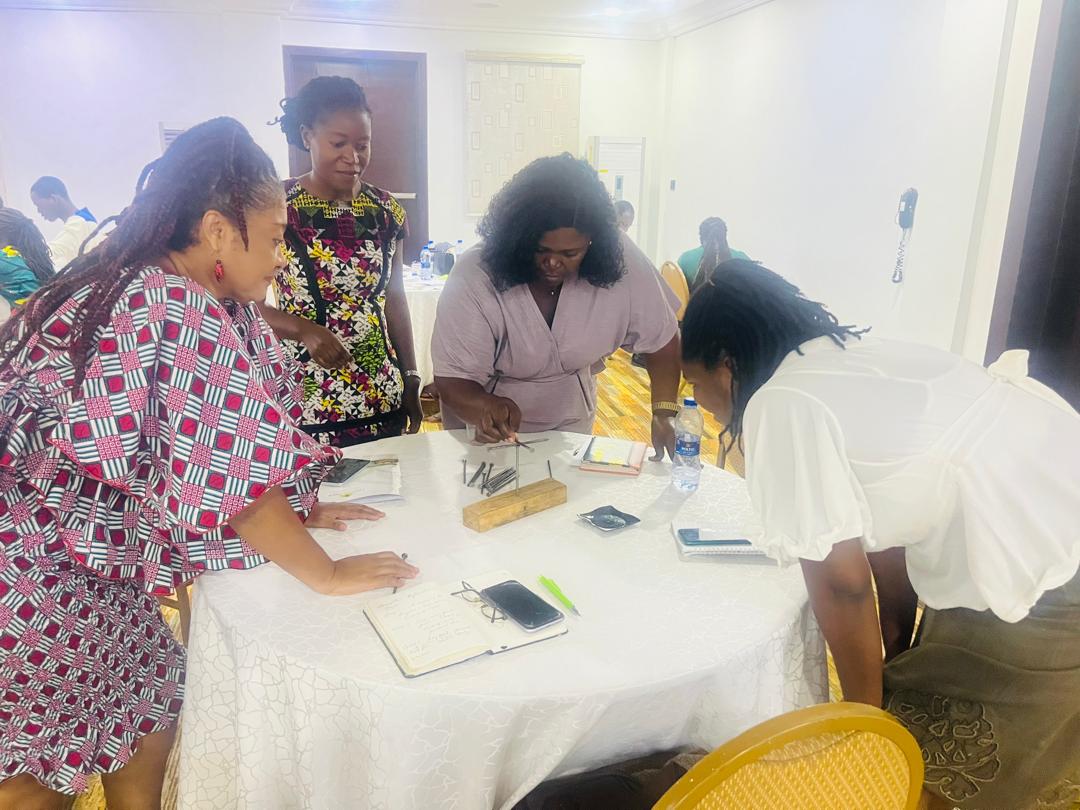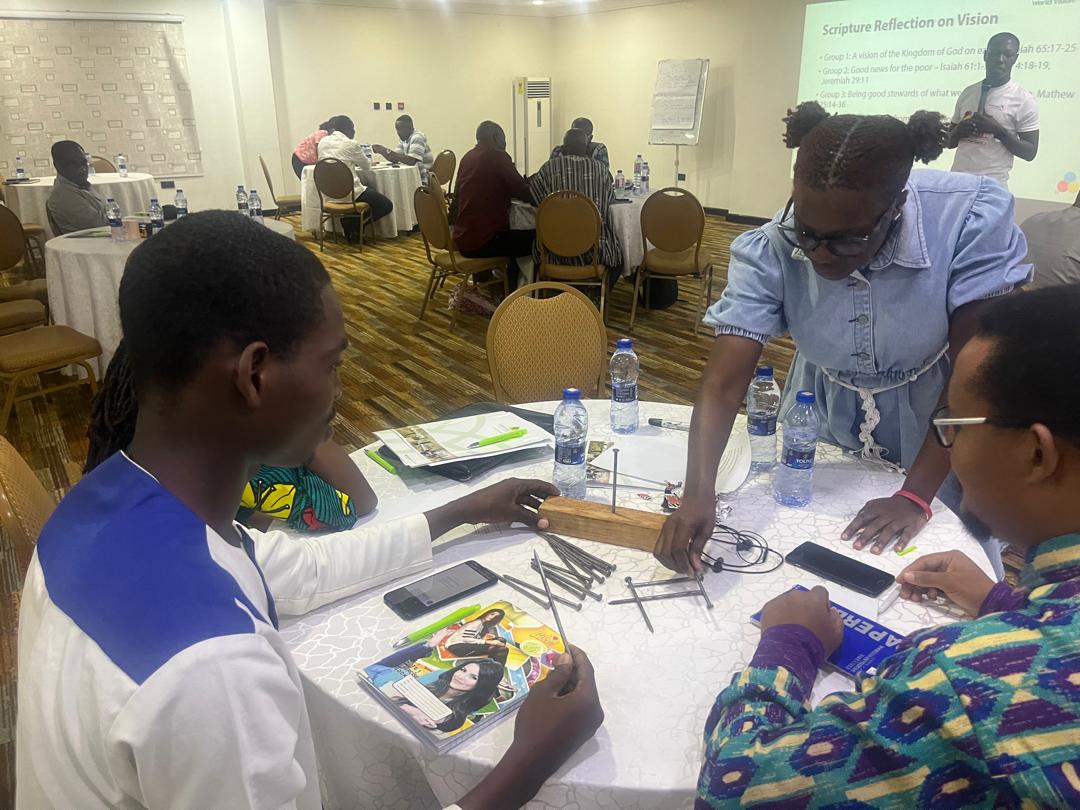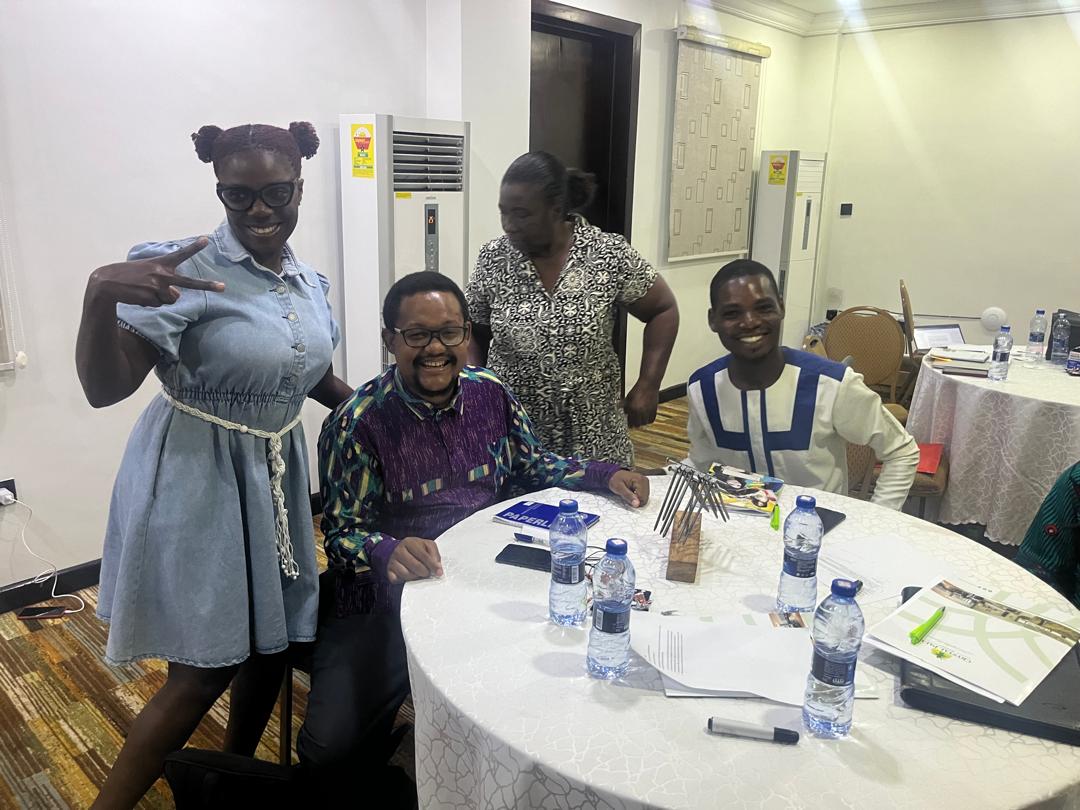World Vision Ghana – Empowered World View (EWV) Workshop
World Vision Ghana organised a training workshop on Empowered World View for members of the Prison Ministry of Ghana to enhance volunteer competence by equipping participants with skills and confidence to engage more effectively with prisoners and others, using the Empowered World View framework to drive personal transformation. The three-day workshop took place at the Crystal Palm Hotel, Tesano, from Tuesday 24th to Thursday 26th September, 2024. This was a fully-funded non-residential programme which catered for 27 participants.
The EWV is a behaviour change model that seeks to address dependency mindsets and promote individual empowerment among people living in poverty. The EWV curriculum uses Biblical principles to engage individuals on issues of identity, self-esteem, hope, and vision for the future. It has been shown to have a positive impact on an individual’s level of empowerment, increasing their ability to become agents of change within their own lives, their families and communities.
Day 1 (Module 1) – Introduction to the workshop.
The tone was set for the workshop by welcoming all participants, who were then encouraged to share their expectations, concerns and challenges for the workshop. The rules for the workshop was then established together with participants, and the basic overview of what will be covered over the three-day workshop was discussed.
Participants also engaged in a fun learning activity called “the longest line” where they were challenged to work together in teams, using only the resources they have between them to stay connected and create the longest line possible. This activity helped participants to get comfortable with each other, and encouraged them to work together to pursue best options for empowered success in a difficult situation.
Learning points for this activity:
* It can surprise us when we see what we can achieve using only what we have.
* Sometimes challenging situations produce natural leaders.
* Once people have a clear vision of what is needed, they become motivated and energized.
* Challenging situations can produce creativity.
Day 2 (Module 2) – Understanding Empowered Worldview
Participants began an in-depth Bible study that examined God’s original plan for mankind and the core concepts of Empowered Worldview. The empowerment process was introduced and the importance of EWV in the context of ministering to prisoners was also examined.
This helped participants to:
* Explore how God’s view of mankind shapes our lives
* Explore aspects of empowerment and disempowerment from God’s perspective
* Appreciate the perspective of other participants.
Participants discussed assigned scriptures in small groups, followed by group presentations.
Key aspects of the Old life and New Life based on selected passages (Genesis 1:26-31, Genesis 3, 2 Corinthians 5:114-21):
- All humans have been created in the likeness of God with a special purpose. We are
created to be creative and productive.
- We are co-creators with God. Laziness is a curse.
- The Fall is the starting point to understand brokenness in our communities. Sin is at the
root of all forms of poverty.
- Despite the fall, God has provided a solution – to reconcile all His creation through
Christ Jesus
- Every culture has both positive and negative aspects. Culture can either promote or hinder
development. We must understand both positive and negative aspects.
- Only God’s power can break the entanglement brought about by powerlessness and
poverty. That power breaks fear of witchcraft and other superstitions.
Finally, participants were introduced to the concept of worldview and how it affects beliefs, values and perceptions. Our Worldview drives the way we behave. Therefore, changing our worldview, or mindset, helps change our behaviour. When worldviews change, people develop the courage to stand against cultural norms that may be harmful.
Day 3 (Modules 3, 4, 5 and 6) – Exploring Identity, Vision, Compassion and Relationships.
Exploring Identity (Genesis 1:27, Mark 2:5, Luke 8:29, Luke 8:48, Colossians 3:9-10)
In this module, participants were challenged to examine personal and communal identity in light of what has been learned from scripture about God’s original plan for us. They acknowledged their true identity as co-creators with God, and that transformation is the news that we are all made in God’s likeness, that God has given all of us gifts so that we can fulfil His creation mandate to be fruitful and productive.
Exploring Vision (Isaiah 65:17-25, Isaiah 61:1-3, Luke 4:18-19, Jeremiah 29:11, Mathew 25:14-36, Nehemiah 5:1-18, Proverbs 31:10-31)
Participants were tasked to reflect on the importance of vision when creating change in the lives of prisoners and in their communities. They examined relevant scripture passages on vision to discern what God says about this by
- Identifying building blocks for work toward sustainable transformation.
- Working together to construct the community’s history
- Working together to pursue best options for empowered success in difficult situations.
Exploring Compassion (Isaiah 58:9-12)
Participants worked together to actively examine the role of compassion in Jesus’ life and ministry, in EWV and in their own communities. They examined compassion as an energising principle for reaching out and ministering to the marginalised in their communities. This activity was to help them develop a compassionate attitude and demonstrate it practically in their community through individual, spontaneous acts of kindness and support of marginalised groups (prisoners and the families they left behind).
A heart of compassion towards others gives people value and significance, creates an alertness to the needs around us, both the obvious and hidden needs, and allows us to be interrupted and willing to put our plans aside in order to meets the needs of others.
Exploring Relationships (Exodus 3:1-2, Genesis 1:27-28, Matthew 5:13-16)
Relationships are an important theme in EWV, therefore, scripture passages on God’s view of relationships were examined by participants that reflect on the role of relationships in their community and work together. Working together on role plays that illumine Jesus’ transformational approach to relationships will inspire participants to make changes in their communities.
The workshop training ended on the third day as participants shared their commitments to incorporate the EWV learning and principles into prison ministry and the community at large.
